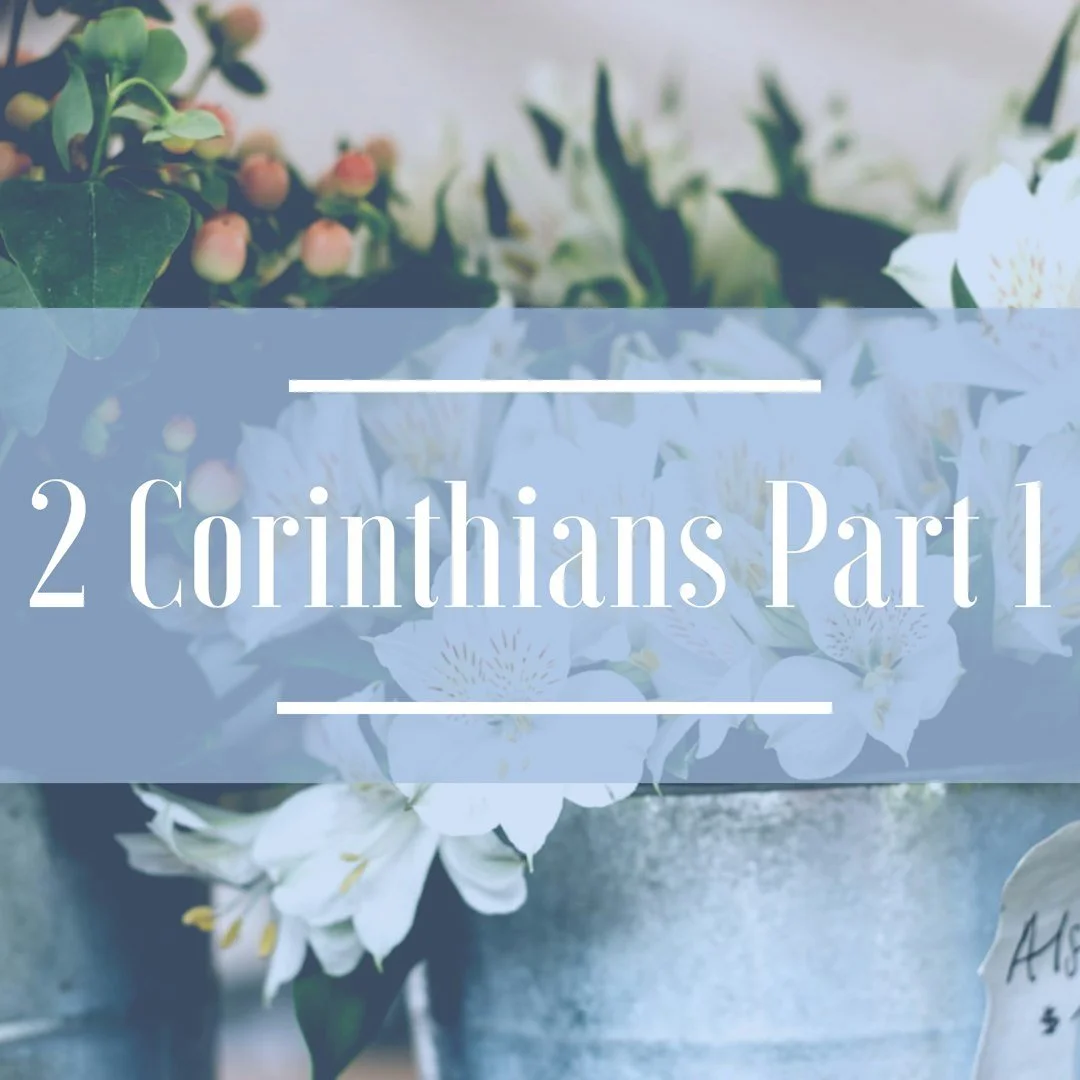How to Read the Bible
/Bible basics
First and foremost, you can trust the Bible. God cannot lie. His Word is true. And you can trust it. Though there are parts you may not understand right away, know that you can trust God’s Word. There are no mistakes in the Scriptures. Everything contained in the Bible is relevant—and has some kind of application for you today.
Did you know that the Bible is made up of 66 different books? Over forty different men composed the Bible’s pages during 1500 plus years. And yet, not one part of the Bible disagrees with another part! Each author in the Bible wrote exactly what God wanted him to write, while still maintaining his own personality and style. This is called the doctrine of inspiration. Here are some verses you can look up about it: 1 Thessalonians 2:13; 2 Timothy 3:16-17; 2 Peter 1:20-21.
The Bible is separated into two parts, which you’ve probably heard about before—the Old Testament and the New Testament. The Old and New Testaments are arranged according to type or genre, rather than chronologically. So, if you started reading the beginning of the Bible, you would soon discover that it jumps around to different time periods because it is organized according to type. The Old Testament groups its books by the Law, historical books, poetry, major prophets (as in longer, larger books) and minor prophets (shorter books). The New Testament begins with the gospels that teach us about Jesus, then it goes to the book of Acts that explains the transition from the Old Testament era to the church age (in which we still live today), after that we have the epistles or letters to different churches, groups, or people.
To help us get around in this long book, each book in the Bible is divided up into chapters and verses. Without the chapter and verse references, like John chapter 3 verse 16, we would have said something like, “Remember that place in the letter that John wrote where Nicodemus the pharisee came to Jesus at night and asked Him what being born again means?” The names of each book and the chapters and verses within them just make it easier to find and remember what God has in each book.
One of my favorite resources for learning more about the Bible and each book in it is a marvelous book called, Talk Thru the Bible by Bruce Wilkinson and Kenneth Boa.
Where should I begin reading?
I love this question! We all need the Bible, even if you’re not a Christian yet, or a brand-new baby Christian, or a mature believer. The Bible is God’s Word to us. He preserved it perfectly all these thousands of years to help us know Him and know how to live for Him. It is only in God’s Word that you will learn more about Him, so reading the Bible is essential. Yet, trying to decide what to read can be overwhelming. All of the Bible is important. There aren’t any parts that don’t have value, but there are some books that contain more of what you need to know when you are just starting out. Keep reading for ideas to get you started.
To begin with I would recommend that you read through the gospels of Matthew, Mark, Luke, and John, which are in the New Testament. Each book focuses on different themes or aspects of Jesus’ life. By reading the Gospels you will gain a better understanding of Jesus’ purpose, life, and why He gave His life for us.
Next, you might consider reading the book of Ephesians. The book of Ephesians is divided into two helpful parts: the first 3 chapters tell you what you need to know about God, Jesus’ work on the cross, and how that intersects with you, while the final 3 chapters of Ephesians contain the “this is what you do when you love the Lord Jesus” counsel every Christian needs for living for the glory of God.
After that, or even better—at the same time, it would be good to read from the Old Testament. The Old Testament is essential because it teaches us about God, His creation, how sin entered the world, and how the Jewish nation was created. The Old Testament teaches you so much about God’s unfailing kindness and great holiness, important qualities for us to know and understand. The easiest way to tackle the Old Testament is to begin with Genesis and then move on to Exodus, Numbers, and then Deuteronomy. If I had to narrow it down, I would say read Genesis, then Deuteronomy. You will learn so much about God through those books!
Try to read Psalms and Proverbs daily, which you’ll find in the middle of the Bible in the Old Testament. Psalms were mostly written by King David, as he went through times of joy and trial in his life. The psalms will encourage you to pour out your heart to the Lord, while helping you trust Him. The Proverbs, written by David’s son, Solomon, contain wisdom for living. They are wise sayings that generally prove true.
Before I became a Christian, when I was trying to figure out God, heaven, hell, salvation, and what that meant for me, I read Matthew, Mark, Luke, and John. I didn’t know anything about the Bible, but knew those four books were about Jesus, so I began there. I read them over and over again. There was much I didn’t understand, but I did begin to understand from reading those four books that Jesus wanted me to follow Him with all my heart, soul, mind, and strength.
Helpful hints for reading the Bible.
The best thing you can do for yourself is to read the Bible. Try not to get distracted reading other books about the Bible. Those books are helpful, and you can add them in later, but when you are starting off, focus on reading the Bible alone. Even when you don’t understand all you’re reading, keep reading.
Read the whole Bible. Read it daily. God says His Word is our spiritual food. Our bodies need food every day. It works the same way for us spiritually. We need to spend time with God every day in His Word so we can grow healthy and strong. Begin a habit of reading God’s Word daily—morning, noon, or night. I have found that starting your day with the Lord in His Word helps you live more obediently and devotedly for Him the rest of the day.
Shortly after I became a Christian, I had a couple of more mature believers teach me about the value of spending time with the Lord each day. Besides having me simply read and reflect on the Bible each day, they also taught me to read through the same book for a month (larger books were broken up into chunks, so that it might take 3 months to complete). This simple step was hugely instrumental for me as a baby believer. The daily reading, rereading, and pouring over the same book of the Bible every day for a month built a good understanding of that particular book, as well as the value of context and an ever-growing skill at observing the text.
You can read the Bible in chunks or in little sections. If it helps you, read it out loud or follow along as it’s read in a Bible app, like YouVersion’s “The Bible App.” Record what your Bible discoveries or questions in a journal or notebook, then talk to another more mature believer about what you’ve learned or don’t understand.
Stuff to know when you are reading the Bible.
“Context is king.” Understanding the importance of context when reading and studying the Bible will save your bacon time and again! “Context is king” simply means that you pay attention to what is said both before and after a verse or section of Scripture. Anytime you are confused about the meaning of a verse, read the verses right before it or right after it. If you have to, keep doing it until it begins to unfold for you. God wants us to understand His Word—and it’s not too hard for you. God loves to see His children pouring over His Word.
Here are some questions you can ask yourself and even record in a notebook. They will help you figure out what God wants you to understand in that particular passage.
First ask, “What does the passage say?” Try to answer the who, what, when, where, why, and how questions. You can ask things like, “Who is speaking?” “What is happening in this passage?” “When does this event take place?” or “Why would this be important for me to know?” This is the first step to studying the Bible, and it’s called observation. Observation is the safety net when you are studying the Bible. If you take time to see what God’s Word says, it will protect you from false teaching and wrong ideas.
After you have spent time observing the text, the next question you can ask when you are studying is this one: “What did the original author intend for the original audience to understand by what he wrote?” This step is called interpretation. If you look for what the original author meant to communicate to his original audience, it will also help you understand the passage accurately.
Once you’ve observed the text and figured out the interpretation of the text, you are then ready to move onto application. When studying the Old Testament, you look for principles that transcend time, culture, and circumstances. Once you discover those timeless principles, you can then ask: “How do these principles apply to me personally?” “What truths can I put into practice and how?” “What changes should I make in my life?” Often when studying the New Testament, the application is much for obvious, since the author will tell you exactly what to do. Seek to apply direct commands from the Scriptures, if the command relates to you.






